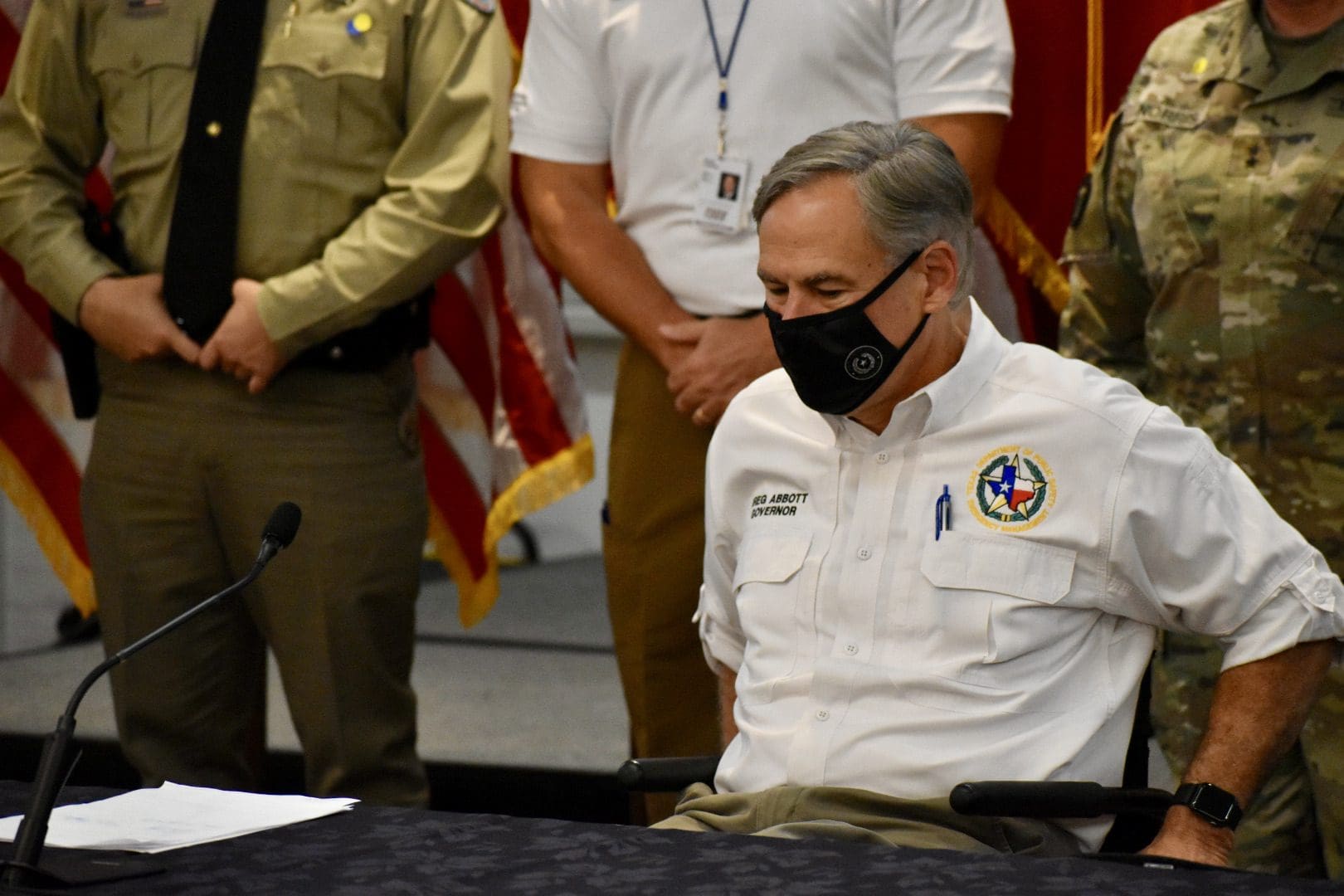During his State of the State address, Gov. Greg Abbott briefly mentioned his use of emergency powers over the course of the last year, but stopped short of giving specifics or implicating himself in relation to any negative ramifications of such actions.
During the address, he stated, “We must ensure that in the event another pandemic ever strikes again, families and businesses will never again face the financial consequences they experienced in 2020. I will continue working with the Legislature to find ways to navigate a pandemic while also allowing businesses to remain open. We must find solutions that allow all Texans to enjoy the unique prosperity that comes with being a Texan.”
What is unclear is what those solutions might be or what solutions the governor would be open to, since many of them could potentially curb his own authority.
Most of that authority in a state of emergency is given under the Texas Government Code, Chapter 418, or provisions from the Texas Disaster Act of 1975. Many legislators dispute the latitude he has and the interpretation of such provisions in relation to COVID-19.
What was also not mentioned in the address is how the governor’s own actions created some of the “financial consequences’” he lamented.
Leading up to this legislative session, many legislators have expressed concern with the approach the governor and local governments took in reaction to COVID-19 to include the use of executive orders. Legislators have indicated that they would author or support legislation potentially curtailing their authority, or at least clarify the authority they would have in such situations. Between early spring and well into the fall of 2020, the governor issued several executive orders that dictated things like which businesses could operate freely without punishment and which businesses were not deemed “essential,” while also restricting the free travel of people to and through the state.
These actions have had a lasting impact on the economic outlook of the state itself, as well as the future prosperity of its citizens.
Several bills have already been filed addressing different aspects of both the governor’s and local government’s authorities during times of a declared disaster.
State Reps. Briscoe Cain (R–Deer Park), Valoree Swanson (R–Spring), James White (R–Hillister), and State Sen. Drew Springer (R–Muenster) have authored similar bills that would curtail the governor’s ability to restrict the sale of alcohol, firearms, and ammunition during times of a disaster or state of emergency.
State Rep. Matt Schaefer (R–Tyler) tweeted in June that he was hearing from business owners in his district regarding the negative effects shutdown orders had on them.
He has since filed a bill that would allow for judicial review and lawsuits for individuals deemed to have standing, to challenge provisions of an emergency order in the event it causes them injury or infringes upon rights protected by the Texas and U.S. Constitutions or by state or federal law.
Democrat State Rep. Trey Martinez Fischer (San Antonio) penned a letter to the governor last June expressing concern over the lack of legislative involvement in the governor’s decisions, stating, “You have placed our recovery in the hands of a registered lobbyist, and I think we can do better. It is time to fully activate the diverse group of lawmakers—Republican and Democratic, rural and urban, old and young—whom you have largely sidelined from the COVID-19 decision-making.”
He went on to say, “These powers are intended to be executed in coordination with lawmakers, not to our exclusion. If state law gives the Legislature the ultimate authority in emergency declarations, then we have the authority to shape [the governor’s] response.”
Martinez Fischer has yet to file any legislation specifically addressing his concerns.
State Rep. Steve Toth (R–The Woodlands) condemned Gov. Abbott’s refusal to allow businesses to reopen and the exclusion of the Legislature in September by stating, “Here’s the problem: if you don’t like the governor’s COVID-19 orders, I have to wait until January of the next odd-numbered year to stop them. The governor isn’t going to call a special session for me to stop his orders before then.”
As a result, Rep. Toth filed a proposed constitutional amendment that would create a trigger for a special legislative session in the event any statewide disaster declaration is extended beyond 30 days, while also barring any suspension of constitutionally protected rights. Similarly, State Rep. Brooks Landgraf (R–Odessa) filed a bill that would prohibit any disaster declaration from being renewed beyond 60 days if 75 percent or more of the state is affected, without calling a special session.
State Rep. Mayes Middleton (R–Galveston) has filed legislation addressing state agencies’ ability to suspend operating licenses of businesses that violate emergency orders. Another bill, filed by State Rep. Matt Krause (R–Arlington), would prohibit any designation of a business as “essential” when compared to any other business, picking winners over losers in relation to who can continue to conduct business under emergency orders. Related to the designation of “essential,” Rep. Matt Shaheen filed a bill that would ensure all religious organizations are given the designation of “essential” at all times, which was something the governor highlighted in his State of the State address.
It is currently unclear which of the aforementioned bills, if any, might qualify as bills the governor would consider if passed. The question on many legislators’ minds, however, has to be whether the governor will approve curtailing his own authority in the process, or whether he was merely talking about the authority of local governments around the state during his address.





